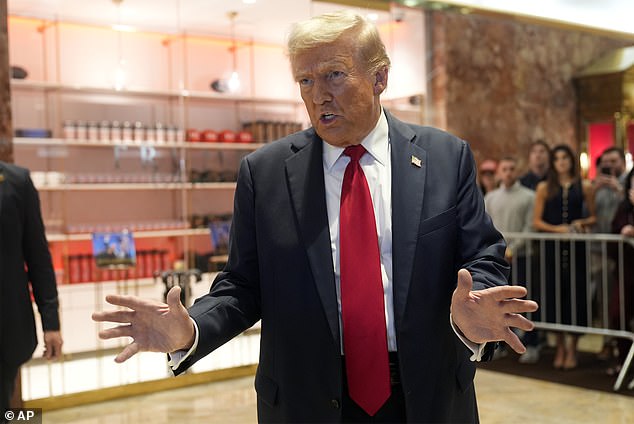In a notable prelude to their much-anticipated meeting, Donald Trump has expressed his admiration for Sir Keir Starmer.
The Republican candidate shared his views ahead of their encounter, describing the Prime Minister as someone who “ran a great race” and is enjoying significant popularity.
Speaking at a press conference at Trump Tower in New York, Trump was asked about his thoughts on Starmer, joking, “Well, I’m going to see him in about an hour, so I have to be nice!”
He continued, “I actually think he’s very nice. He did very well; it’s early, and he’s very popular.”
Praise for Farage
When asked about Nigel Farage and his role with Reform UK, Trump didn’t hold back his appreciation.
“I think Nigel is great; I’ve known him for a long time.
He had a great election too, picking up more seats than he was supposed to.”
Trump pointed out the peculiarities of the electoral system in the UK, implying that while candidates may win, the rules can sometimes prevent them from fully capitalizing on their success.
Sir Keir’s Ambitious Agenda
As Sir Keir prepared for his meeting with Trump, he was busy delivering an important address at the United Nations General Assembly.
Unfortunately, his efforts to meet with Democratic candidate Kamala Harris before heading back to the UK fell short.
She was occupied in Washington, meeting with Ukraine’s leader to discuss his “victory plan.”
It remains uncertain whether Sir Keir will get the chance to connect with her before the upcoming U.S. election in just over a month.
In his own comments before meeting Trump, Sir Keir emphasized the significance of establishing a personal relationship with international counterparts.
“I believe personal relationships are crucial on the world stage,” he remarked, expressing a desire to connect face-to-face with leaders.
However, he noted that the UK’s embassy has maintained good relations with both camps for a long time, framing his meeting as a continuation of that positive rapport.
A Call for Ceasefire
During his address at the UN, Sir Keir delivered a passionate plea for Israel and Hezbollah to de-escalate tensions and agree on a ceasefire.
His call for peace comes amidst warnings from Israeli Prime Minister Benjamin Netanyahu about ongoing military operations, as he dismissed talks of a ceasefire.
Sir Keir cautioned that the violence risks expanding into an uncontrollable wider conflict, urging, “Stop the violence. Step back from the brink.”
He stressed the need for an immediate ceasefire to create space for diplomatic discussions, emphasizing that failure to do so would lead to more suffering for innocent civilians and unpredictable consequences.
Addressing Humanitarian Crises
Sir Keir didn’t shy away from addressing the dire humanitarian situation in Gaza, stating, “It shames us all that the suffering in Gaza continues to grow.”
He called for an immediate ceasefire there as well as the release of hostages held by Hamas.
Furthermore, he advocated for reforms within the UN, asserting that the ongoing war in Ukraine is a significant test for the organization.
The UK, he affirmed, would stand with Ukraine “for as long as it takes.”
He underscored the necessity of demonstrating that international law holds value and that aggressors cannot act with impunity.
Proposing Global Initiatives
In a demonstration of his vision for the UK’s role on the global stage, Sir Keir introduced a new British International Investment initiative aimed at harnessing funds from pension and insurance sectors to foster development and combat climate change.
He also proposed a new international levy on global shipping to account for the real costs of emissions, with proceeds dedicated to addressing climate challenges.
Moreover, Sir Keir called for a restructuring of the UN Security Council to make it more representative and proactive.
He suggested including permanent African representation and expanding the current roster of permanent members to include Brazil, India, Japan, and Germany.
In closing, he promised a shift in the UK’s approach, advocating for a partnership-focused future: “Listening a lot more and speaking a bit less.”
With this meeting and the discussions that follow, the stage is set for potential shifts in international relations.
